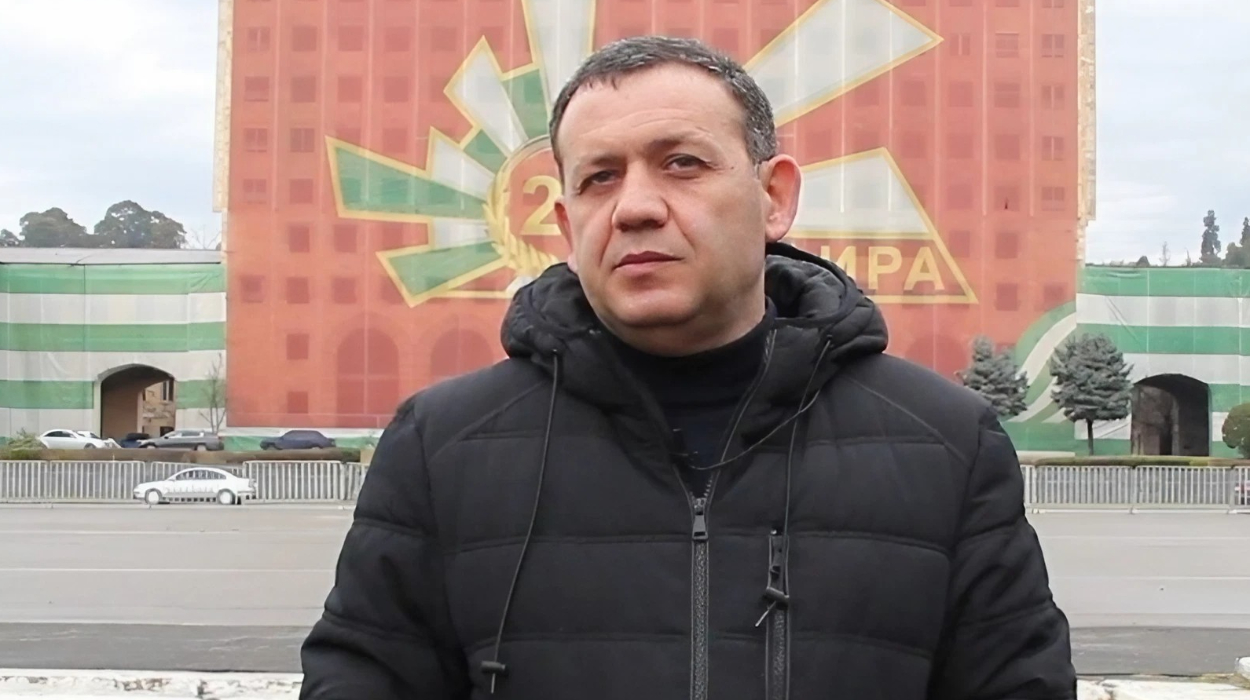Tengiz Dzhopua: “They're asking us to label our own children as enemies. How can this be justified?”

Tengiz Dzhopua, Abkhazian public and political figure.
Public figure Tengiz Dzhopua offered a critical response to Sergey Shamba's remarks, the Secretary of the Security Council, delivered at the Media Center of the Ministry of Foreign Affairs of the Republic of Abkhazia.
Sergey Shamba observed, "Countries traditionally friendly towards Russia, such as Belarus, Ukraine, Armenia, and Georgia, have seen a rise in anti-Russian sentiments. This shift is directly attributed to the influence exerted by certain non-governmental organisations on the youth. I wholeheartedly believe these organisations are our partners; we have shared experiences of 'Aidgylara' ["Unity" —The National Forum], the war, and much more, establishing deep trust. Yet, it's crucial our strategic ally contemplates the future generations—what values will guide them? Their apprehensions, possibly rooted in historical mistrust due to our varied past interactions, are valid. This concern underscores the debate—our ally's ongoing struggle for security, our beacon of hope. If their fears are well-founded, our response must prioritise national over personal interests." Such reasoning underpins Sergey Shamba's support for the foreign agents law.
Tengiz Dzhopua, a prominent community member and Public Chamber affiliate, starkly opposed the Secretary's viewpoint:
"Undoubtedly, Russia's surrounding developments bear significance for Abkhazia, given our deep economic, legal, social, and cultural integration. Nevertheless, it's paramount to acknowledge Abkhazia's status as a sovereign, independent entity, with its distinct political and cultural heritage, and a democracy defined by Surkov. No one in our world wants to have an external agenda imposed on their internal politics. Abkhazia has a foreign policy course – strategic partnership with Russia, we all agree with it, support it, and consider it a priority. But to interfere in our way of life, our internal social relations, our freedom, our values, traditions, culture, - I think that is not right. Nobody wants to see someone else's charter in their own monastery. And those internal forces that, one way or another, impose such an agenda in our society (it personally does not matter to me where this agenda comes from) must understand this. I am talking about the law on foreign agents, which is constantly associated with the situation around Russia. I think it's wrong that we should implement internal politics based on the consideration of internal and external threats existing in another state. Of course, these threats are projected onto us to some extent, but we must have our own internal policy, our own political culture, and imposing something foreign by our strategic partner is absolutely unacceptable.
+ "How Can We Allow One Abkhaz to Label Another Abkhaz?" By Vitaly Sharia
+ Abkhazia's "Foreign Agents" Bill Stirs Memories of Historical Repressions
+ Diana Kerselyan: "We Do Not Intend to Be Recognised as Enemies of the People"
+ President Bzhania Accused of Constitutional Breach with "Foreign Agents" Draft Law
Regarding our youth, the prevailing governmental stance is concerning. The underlying issue, symbolised by ҲараҲПицунда (‘Our Pitsunda’ — youth movement), raises questions about the political elite's perception of modern youth. This disconnect, I believe, originates from governmental actions in the post-war era, which have marginalised the innovative, educated young Abkhazians, depriving them of opportunities for growth and self-actualisation. The difficulty in securing meaningful employment, overshadowed by the preference for employing less qualified individuals due to nepotism or political loyalty, highlights a systemic failure. The malfunctioning of our societal elevators, which should facilitate upward mobility based on merit, serves as a testament to this issue."
- Who exactly are you referring to?
"The individuals I have mentioned. Indeed, our approach to staffing has consistently been illogical, predominantly driven by political motives. We tend to hire those who align with us politically, those who will execute our orders without question. Yet, as administrations change, so does the personnel, often excluding those who are both intelligent and educated because they refuse to engage in political manoeuvring, seeking only to work. As a result, we're effectively pushing these individuals out of the country. Whether they choose not to return after studying abroad, decide to leave Abkhazia, or find employment with foreign entities or international organisations, the fault lies with us, not them. This predicament underscores the shortcomings of both our governance and our approach to youth policy, which the political elite seems to recall only when it serves their interests.
In periods of disinterest, the dire realities facing our youth, including existential despair, criminal entanglements, substance abuse, a deteriorating educational system, and a bleak future, garner no attention. It appears, regrettably, that the elite prioritises only the welfare of their offspring. However, when a segment of our youth—autonomous, educated, and articulate, demanding justice—starts to make their presence felt, challenging the status quo, they are perceived as a threat. The establishment finds itself ill-equipped to engage with such dynamic youth, having failed to nurture a similarly empowered generation. Today's so-called elite youth, whose operations have not gone unnoticed, appear primarily motivated by personal advancement and wealth accumulation.”
This interview was published by ApsnyHabar and is translated from Russian.